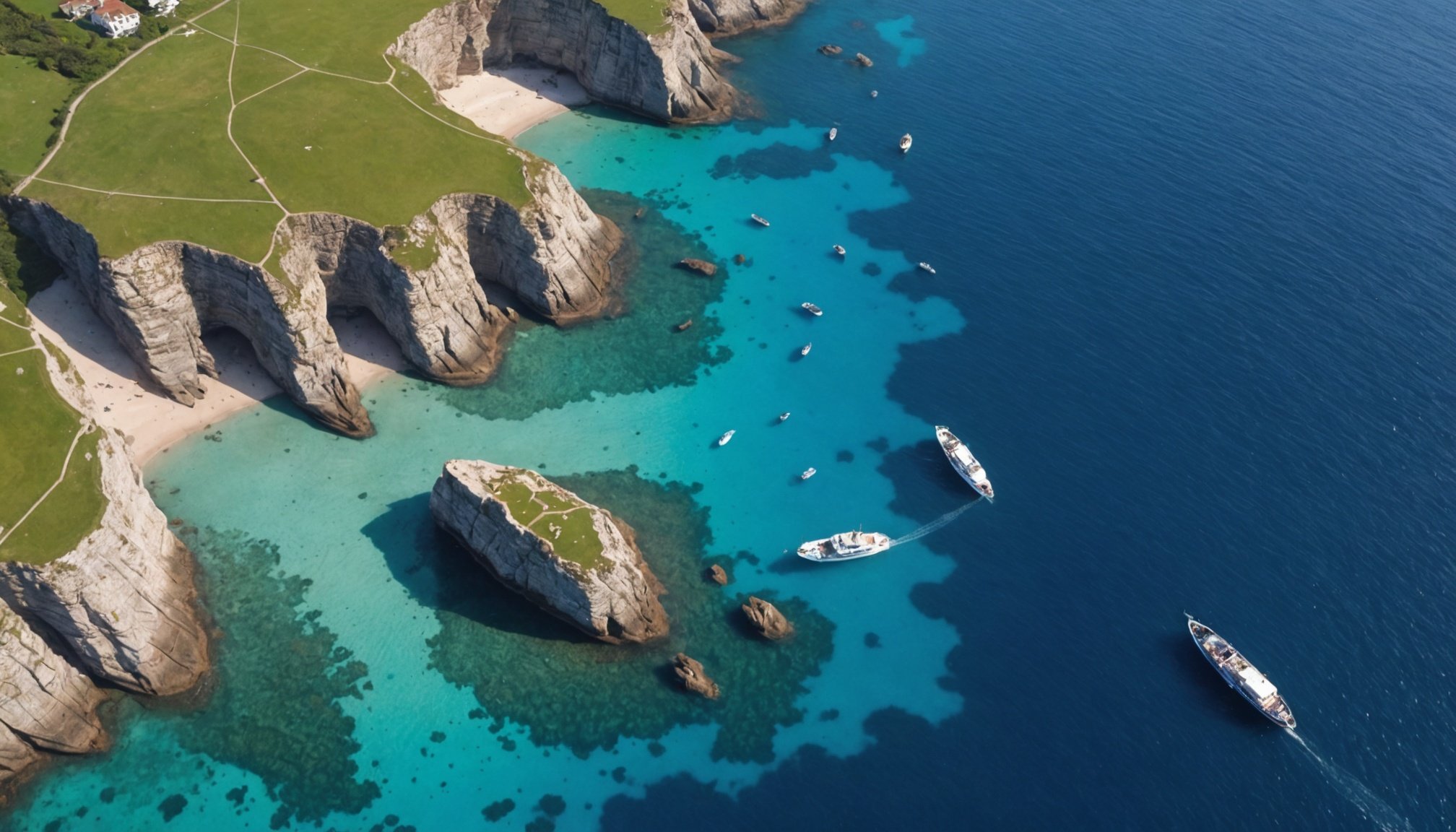Launching a Marine Conservation Consultancy in the UK: A Comprehensive Guide
Understanding the Need for Marine Conservation
In these critical days for our planet, the importance of marine conservation cannot be overstated. The oceans, which cover over 70% of the Earth’s surface, are vital for biodiversity, climate regulation, and the well-being of countless species, including humans. However, marine ecosystems are facing unprecedented threats, from climate change and pollution to overfishing and habitat destruction.
“The healthier our ecosystems are, the healthier the planet – and its people,” emphasizes the UN Decade on Ecosystem Restoration, a global initiative aimed at preventing, halting, and reversing ecosystem degradation[2].
Additional reading : Your ultimate guide to launching a telehealth platform in the uk: navigating medical data compliance with confidence
Setting Up Your Consultancy
Choosing the Right Structure
When launching a marine conservation consultancy in the UK, you need to decide on the legal structure of your business. Here are a few options:
- Sole Trader: This is the simplest and most common structure, where you are personally responsible for the business.
- Limited Company: This offers more protection and tax benefits but requires more administrative work.
- Charitable Organization: If your primary goal is to raise funds for conservation projects, registering as a charity could be beneficial.
Registering Your Business
Once you’ve decided on the structure, you’ll need to register your business with the relevant authorities. For a limited company, this involves registering with Companies House. Here’s a step-by-step guide:
This might interest you : Your essential handbook to uk waste management compliance: a navigational guide for recycling startups
- Choose a Unique Name: Ensure your business name is not already in use.
- Register with Companies House: Submit your application along with the necessary documents and fees.
- Obtain Necessary Licenses: Depending on your activities, you may need licenses from environmental agencies or local authorities.
Building Your Team
Hiring Experts
A successful marine conservation consultancy needs a team of experts in various fields. Here are some key roles to consider:
- Marine Biologists: Specialists in marine life and ecosystems.
- Environmental Scientists: Experts in water quality, pollution, and climate change.
- Policy Analysts: Professionals who understand environmental policy and regulations.
- Project Managers: Experienced in managing conservation projects from start to finish.
Training and Development
Investing in the training and development of your team is crucial. This could include:
- Workshops and Seminars: Regular training sessions on the latest conservation techniques and technologies.
- Certifications: Encourage team members to obtain relevant certifications, such as those offered by the Wildlife Trust or other environmental organizations.
- Collaborations: Partner with universities, research institutions, or other conservation organizations to stay updated on the latest research and best practices.
Securing Funding
Grants and Donations
Securing funding is a critical aspect of any conservation effort. Here are some ways to fund your consultancy:
- Apply for Grants: Organizations like the Global Environment Facility (GEF) provide grants for environmental projects, including marine conservation[1].
- Donations: Reach out to philanthropic individuals, foundations, and corporate donors who support environmental causes.
- Crowdfunding: Platforms like Kickstarter or GoFundMe can be used to raise funds for specific projects.
Pro Bono and Paid Services
Offering a mix of pro bono and paid services can help sustain your consultancy:
- Pro Bono Work: Provide free services to local communities or small NGOs to build your portfolio and network.
- Paid Services: Offer consulting services to water companies, government agencies, and other organizations that need environmental assessments and conservation strategies.
Developing Your Services
Environmental Assessments
One of the core services your consultancy can offer is environmental assessments. This includes:
- Impact Assessments: Evaluating the potential environmental impact of projects such as offshore wind farms or coastal development.
- Baseline Studies: Conducting thorough studies of the current state of marine ecosystems before any development.
- Monitoring Programs: Setting up long-term monitoring programs to track changes in marine environments.
Conservation Projects
Developing and implementing conservation projects is at the heart of your consultancy. Here are some examples:
- Habitat Restoration: Projects aimed at restoring damaged or degraded marine habitats, such as coral reefs or mangroves.
- Species Conservation: Initiatives focused on protecting specific marine species, such as sea turtles or marine mammals.
- Community Engagement: Working with local communities to educate them about the importance of marine conservation and involve them in conservation efforts.
Marketing and Networking
Building Your Brand
Creating a strong brand is essential for attracting clients and securing funding. Here are some tips:
- Website and Social Media: Develop a professional website and maintain an active presence on social media platforms.
- Networking Events: Attend conferences, seminars, and workshops related to marine conservation to network with potential clients and partners.
- Case Studies and Testimonials: Share success stories and testimonials from previous clients to build credibility.
Collaborations and Partnerships
Collaborating with other organizations can enhance your impact and credibility:
- Wildlife Trusts: Partner with local wildlife trusts to leverage their expertise and resources.
- Water Companies: Collaborate with water companies to develop sustainable water management practices.
- Government Agencies: Work with government agencies to influence policy and implement large-scale conservation projects.
Policy and Advocacy
Understanding Environmental Policy
Staying updated on environmental policy is crucial for any marine conservation consultancy. Here are some key policies to be aware of:
| Policy | Description |
|---|---|
| Marine and Coastal Access Act | Regulates access to marine and coastal areas for conservation and recreation. |
| Water Framework Directive | Aims to improve the quality of water bodies across the EU. |
| Climate Change Act | Sets targets for reducing greenhouse gas emissions. |
| Biodiversity Strategy | Outlines national goals for conserving and enhancing biodiversity. |
Advocacy and Public Engagement
Advocacy and public engagement are vital for driving change:
- Public Campaigns: Organize public campaigns to raise awareness about marine conservation issues.
- Policy Briefs: Prepare policy briefs to influence decision-makers and advocate for stronger environmental protections.
- Community Outreach: Engage with local communities through workshops, educational programs, and volunteer opportunities.
Practical Insights and Actionable Advice
Home-Based Operations
Starting small with home-based operations can be cost-effective:
- Virtual Meetings: Use technology to conduct virtual meetings and reduce travel costs.
- Remote Work: Allow team members to work remotely to increase flexibility and productivity.
Data Collection and Analysis
Data is crucial for making informed decisions in marine conservation:
- Field Data Collection: Conduct thorough field studies to collect data on marine ecosystems.
- Data Analysis: Use statistical tools and software to analyze data and draw meaningful conclusions.
Closing Days and Deadlines
Managing projects efficiently is key to meeting deadlines:
- Project Management Tools: Use tools like Trello or Asana to manage projects and track progress.
- Regular Updates: Provide regular updates to clients and stakeholders to ensure transparency and build trust.
Launching a marine conservation consultancy in the UK is an exciting opportunity to make a real difference in protecting our planet’s vital marine ecosystems. By understanding the need for conservation, setting up your business correctly, building a strong team, securing funding, developing comprehensive services, marketing effectively, and advocating for policy changes, you can create a successful and impactful consultancy.
As the UN Decade on Ecosystem Restoration emphasizes, “It will only succeed if everyone plays a part”[2]. Your consultancy can be a crucial part of this global effort, working towards a future where our oceans and their inhabitants thrive.
Apply Soon: The Days Left Are Counting
With the specified closing date for many grants and funding opportunities fast approaching, it’s essential to apply soon. Don’t leave it to the last day; ensure you have enough time to prepare a strong application. The days left are counting, and every effort you make now will contribute to a better environmental future for all.











